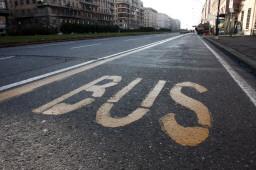Left-wing groups have slammed two cities in the southern region of Puglia for allegedly promoting racial segregation after they set up bus services for immigrants.
The bus service in Foggia runs between a migrant centre in the city suburbs and the city centre in order to facilitate access for 1,000 immigrants, while there is a similar service in Bari.
Left-wing Puglia Governor Nichi Vendola said Thursday the service ''had the taste of segregation'' and called for it to be abolished ''as soon as possible''.
Rejecting claims that the immigrant bus line is discriminatory, Foggia Mayor Orazio Ciliberti said Friday there had ''never been any wish to segregate'' people in the city.
''There's no apartheid here. We set up an additional service to integrate and include. The immigrants, like all the citizens of Foggia, can take any means of transport and are free to do so,'' he said.
Ciliberti said this included a second service that connects the suburb with the city, while pointing out that this stopped ''a kilometre away from the camp''.
The mayor said he regretted that ''an initiative born to increase the welcome, integration and transport services has been interpreted in such a summary and superficial manner''.
Local transport company Ataf confirmed in a note that there was ''no impediment towards any category of users'' from using Foggia transport and explained the immigrant bus had been set up to prevent the existing line from being ''clogged up'' because of the increased demand.
A similar service in Bari, which runs four times a day free of charge to immigrants between a migrant centre in the suburbs and the city centre, has also come under fire.
Left-wing students handed out leaflets in the city Friday asking the mayor to cancel the service.
But Bari Mayor Michele Emiliano also defended the service, explaining the nearest preexisting bus stop to the centre had been several kilometres from the centre, requiring immigrants to cross fields and a railway line to reach it.
Immigrants were welcome to take any other means of public transport in the city, he added, provided they paid for a ticket like other citizens.



